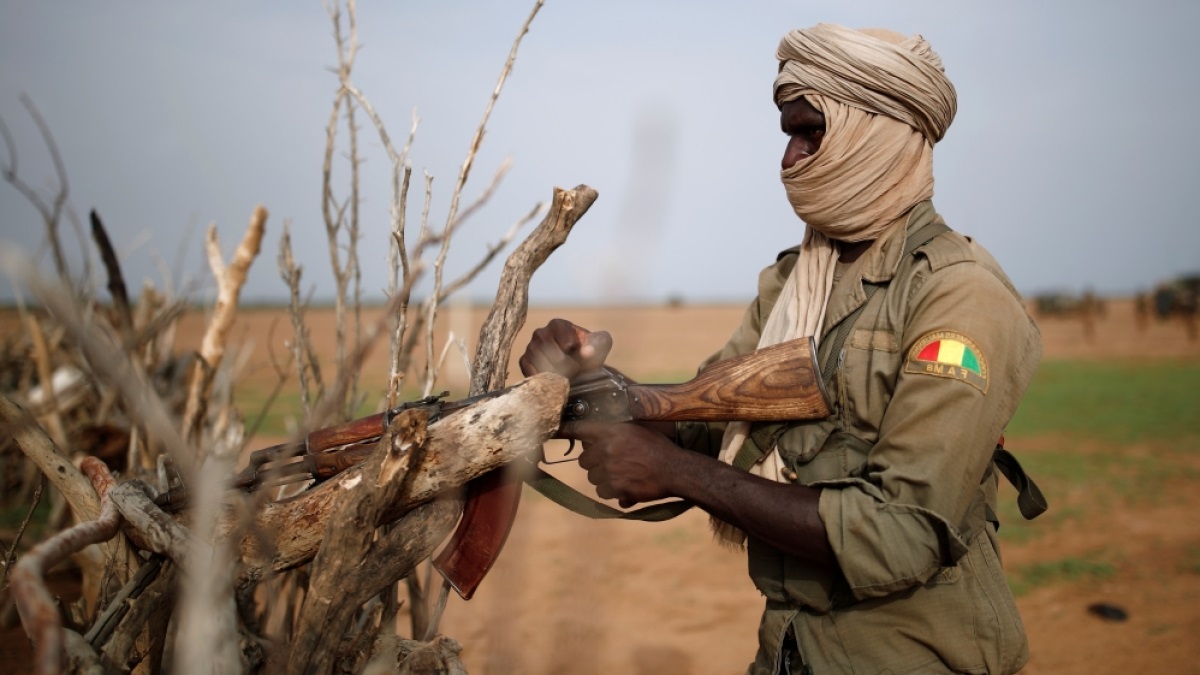
The Fulani War, also known as the Fulani Jihad, was a significant conflict in West Africa during the early 19th century. This war reshaped the region's political and social landscape, leading to the establishment of the Sokoto Caliphate. The Fulani, a nomadic ethnic group, led this jihad under the leadership of Usman dan Fodio. The conflict began in 1804 and lasted until 1808, driven by religious and social motivations. The Fulani sought to purify Islam and address injustices within the Hausa kingdoms. This war not only altered the power dynamics but also influenced the cultural and religious practices in the region. Understanding the Fulani War provides insight into the historical context of West Africa and the enduring legacy of the Sokoto Caliphate.
Key Takeaways:
- The Fulani War, led by Usman dan Fodio, reshaped West Africa in the 19th century, establishing the Sokoto Caliphate and spreading Islam, leaving a lasting impact on the region's history and culture.
- Usman dan Fodio's Fulani War aimed to purify Islam, combat corruption, and address social inequality, leading to the establishment of the Sokoto Caliphate and shaping West Africa's political and religious landscape.
The Fulani War: An Overview
The Fulani War, also known as the Fulani Jihad or Sokoto Jihad, was a significant conflict in West Africa during the early 19th century. This war reshaped the region's political and social landscape, leading to the establishment of the Sokoto Caliphate.
- The Fulani War began in 1804 and lasted until 1808.
- Usman dan Fodio, a religious leader and scholar, led the Fulani War.
- The conflict primarily took place in present-day Nigeria.
- The war aimed to establish a purer form of Islam and combat corruption.
- The Fulani War resulted in the creation of the Sokoto Caliphate, one of the largest empires in Africa at the time.
Key Figures in the Fulani War
Several important figures played crucial roles in the Fulani War. Their leadership and actions significantly influenced the course and outcome of the conflict.
- Usman dan Fodio, the war's leader, was a Fulani scholar and preacher.
- Usman's son, Muhammad Bello, played a significant role in military campaigns.
- Nana Asma'u, Usman's daughter, was a poet and scholar who supported the war's cause.
- Abdullahi dan Fodio, Usman's brother, was a key military leader.
- The Hausa rulers were the primary opponents of the Fulani forces.
Causes of the Fulani War
Understanding the causes of the Fulani War helps explain why this conflict erupted and how it shaped the region's history.
- Religious reform was a major cause, as Usman dan Fodio sought to purify Islam.
- Corruption among Hausa rulers fueled discontent and support for the war.
- Social inequality and oppression of the Fulani people contributed to the conflict.
- Economic factors, including control over trade routes, played a role.
- The desire for political power and territorial expansion also motivated the Fulani leaders.
Major Battles and Campaigns
The Fulani War featured several significant battles and military campaigns that determined its outcome.
- The Battle of Tabkin Kwatto in 1804 was one of the first major conflicts.
- The Siege of Alkalawa in 1808 marked a decisive victory for the Fulani forces.
- The Battle of Gawakuke saw the Fulani defeat a large Hausa army.
- The capture of Kano in 1807 was a turning point in the war.
- The fall of Gobir in 1808 effectively ended the conflict.
Impact of the Fulani War
The Fulani War had far-reaching consequences for West Africa, influencing its political, social, and religious landscape.
- The establishment of the Sokoto Caliphate unified much of northern Nigeria under Islamic rule.
- The war led to the spread of Islam and Islamic education in the region.
- The Fulani War disrupted traditional power structures and weakened Hausa kingdoms.
- The conflict resulted in significant population displacement and migration.
- The Sokoto Caliphate became a major center of trade and scholarship.
Legacy of the Fulani War
The legacy of the Fulani War continues to be felt in West Africa today, shaping the region's history and culture.
- The Sokoto Caliphate's influence persisted until British colonization in the early 20th century.
- Usman dan Fodio is remembered as a hero and reformer in many parts of West Africa.
- The war's emphasis on education and scholarship left a lasting impact on Islamic learning.
- The Fulani War inspired other jihad movements in West Africa.
- The conflict's legacy is reflected in the region's religious and cultural practices.
The Lasting Impact of the Fulani War
The Fulani War left a significant mark on West African history. It reshaped political landscapes, altered social structures, and influenced cultural practices. The conflict led to the establishment of the Sokoto Caliphate, which became a major Islamic state in the region. This caliphate played a crucial role in spreading Islam and promoting education through the establishment of numerous schools and learning centers.
The war also highlighted the power of religious and ethnic unity. The Fulani, united by their faith and common goals, managed to overthrow established kingdoms and create a new order. This unity and determination continue to inspire movements and leaders today.
Understanding the Fulani War helps us appreciate the complexities of African history and the enduring influence of past events on present-day societies. The legacy of this conflict is a testament to the resilience and adaptability of the people involved.
Frequently Asked Questions
Was this page helpful?
Our commitment to delivering trustworthy and engaging content is at the heart of what we do. Each fact on our site is contributed by real users like you, bringing a wealth of diverse insights and information. To ensure the highest standards of accuracy and reliability, our dedicated editors meticulously review each submission. This process guarantees that the facts we share are not only fascinating but also credible. Trust in our commitment to quality and authenticity as you explore and learn with us.
